- (551) 389-0390
- 5665 John F. Kennedy Blvd, #223, North Bergen, NJ, 07047
- closingmastersgaragedoors@gmail.com
- Sun-Thu: 7am-10pm Fri: 7am-5pm
Your garage door plays a significant role in your daily life, providing convenient access to your home while keeping your belongings safe. However, if your garage door has become a source of noise pollution, it can be quite a nuisance. A noisy garage door not only disrupts your peace but may also signal underlying issues that need attention. In this blog post, we’ll explore the causes of a noisy garage door and provide practical solutions to help you enjoy a quieter and more efficient garage door system.
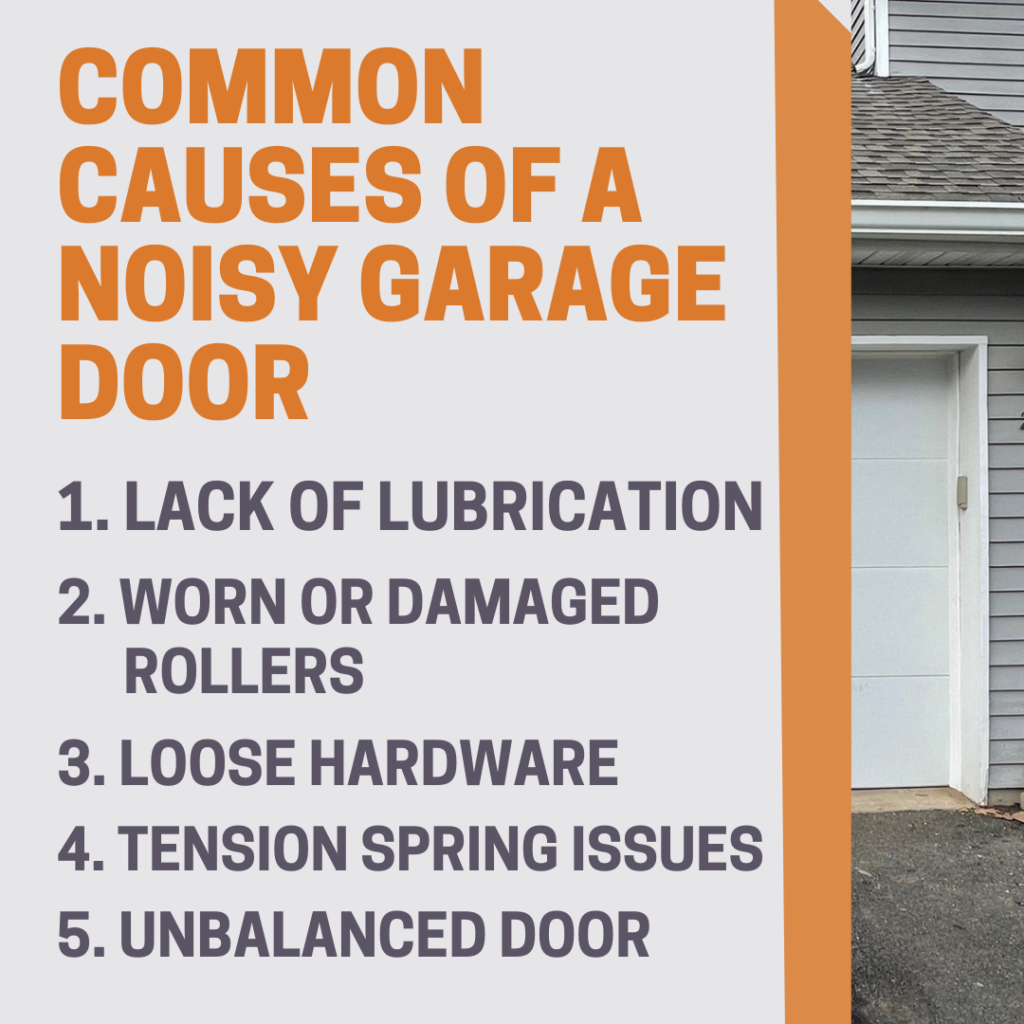
Before we delve into the solutions, let’s identify the most common culprits behind a noisy garage door:
One of the leading causes of a noisy garage door is insufficient lubrication of its moving parts. Over time, the various components of your garage door system, such as hinges, rollers, and springs, can become dry and create friction, resulting in irritating squeaks and squeals.
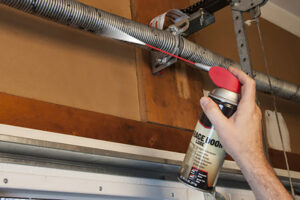
Rollers play a crucial role in the smooth operation of your garage door. When they wear out or become damaged, they can create grinding or screeching noises as the door moves along the tracks.
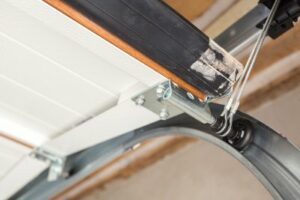
Vibrations from regular use can cause nuts, bolts, and other hardware to become loose. Loose components can rattle and make your garage door sound noisy and unstable.
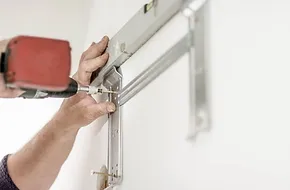
Tension springs are responsible for counterbalancing the weight of the garage door. When they wear out or break, they can emit loud bangs or pops when the door is in motion.
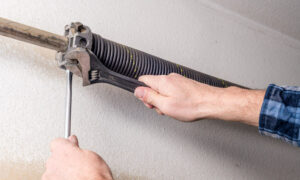
An unbalanced garage door can put extra strain on the opener and create loud noises. This imbalance may result from a misaligned track, damaged springs, or worn-out cables.
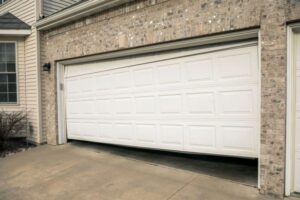
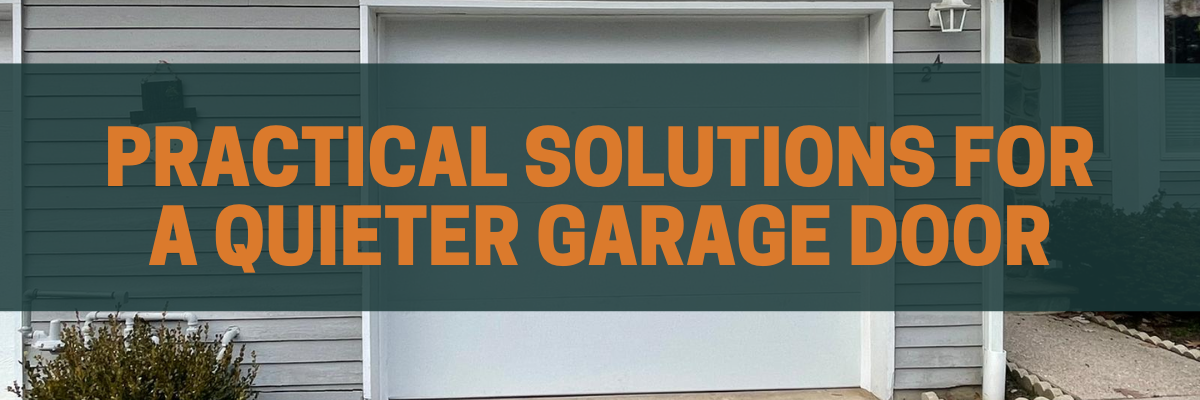
Now that we’ve identified the common causes of a noisy garage door, let’s explore some practical solutions to help you enjoy a quieter and more peaceful garage space:
Proper lubrication is essential to reduce friction and minimize noise. Use a high-quality silicone or lithium-based garage door lubricant to grease the moving parts, including hinges, rollers, springs, and tracks. Be sure to follow the manufacturer’s recommendations for lubrication intervals.
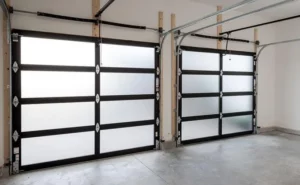
If you notice worn or damaged rollers, replace them promptly. Nylon rollers are a popular choice for reducing noise, as they are quieter than traditional metal ones.
Regularly inspect and tighten all nuts, bolts, and screws in your garage door system. A socket wrench or pliers can be useful for this task. Pay particular attention to the brackets and hinges.
Have a professional technician inspect your tension springs regularly. If they show signs of wear or damage, they should be replaced immediately to prevent further noise and potential safety hazards.
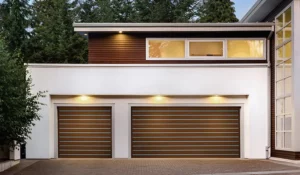
An unbalanced door can cause excessive noise and strain on your opener. Ensure that your garage door is properly balanced by calling a professional technician to make the necessary adjustments.
Invest in noise-reducing accessories like anti-vibration pads and soundproofing materials for your garage door and opener. These can significantly reduce noise transmission and create a quieter environment.
Regular maintenance by a professional garage door technician is essential for preventing and addressing noisy garage door issues. They can identify and fix problems before they escalate.
A noisy garage door can be a persistent annoyance, but it’s also a signal that your garage door system may require attention. By addressing the common causes and implementing the practical solutions mentioned above, you can enjoy a quieter and more efficient garage door. Regular maintenance and care not only reduce noise but also extend the lifespan of your garage door, ensuring it continues to serve you reliably for years to come.

Your trusted experts for garage door repair, installation, and maintenance in North Bergen, NJ. Reliable services for residential and commercial properties. Contact us to schedule your service and experience the best in garage door care!